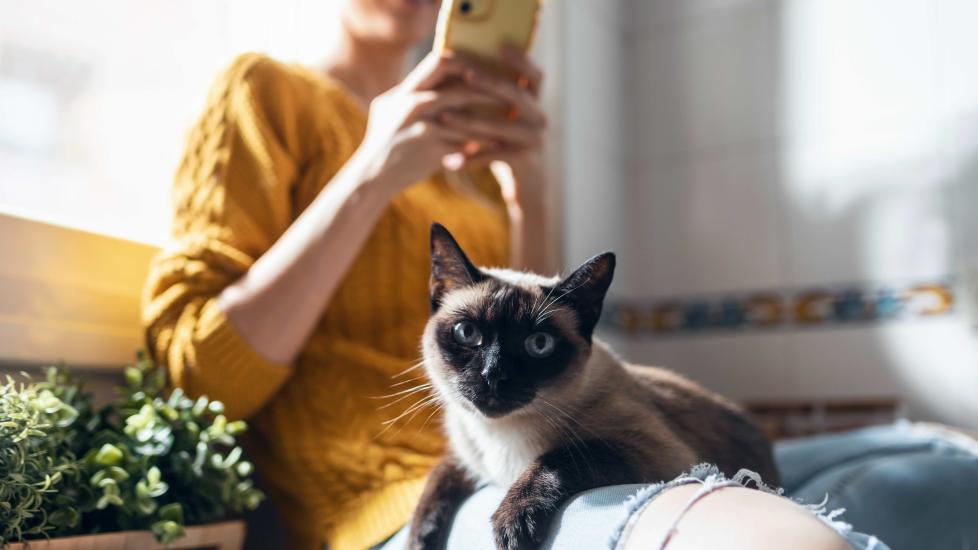12 ‘Hypoallergenic’ Cats for People With Allergies
Adobe Stock/nenetus
More than 46 million homes in the U.S. have a cat. But if you’re allergic, opening your house to a feline friend can be … complicated. That said, there are some “hypoallergenic” cats that can be a good fit for your allergies.
What Is a Hypoallergenic Cat?
While all cats produce allergens in their fur, saliva, and urine, some breeds (commonly called “hypoallergenic cats”) produce lower levels of the proteins that trigger allergies. There is no such thing as a completely hypoallergenic cat, but certain breeds might be a better fit for some people who sneeze and itch around kitties.
12 Cats That Are 'Hypoallergenic'
Here are some of the most common cat breeds for people with allergies. Keep in mind that, before bringing home a “hypoallergenic” cat, spend time with the breed to determine how your allergies react.
1. Siberian
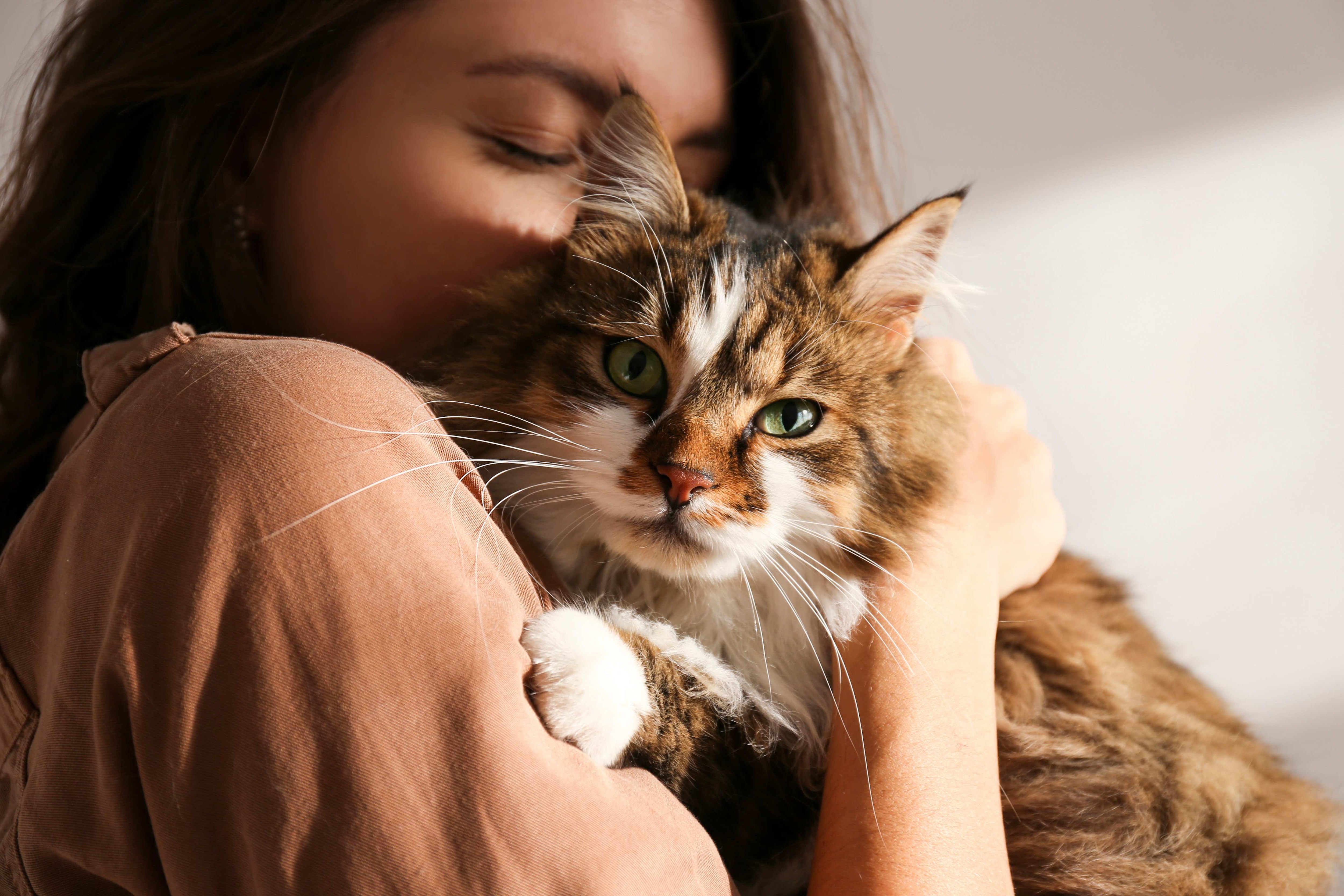
Siberians are a popular hypoallergenic breed. Despite having thick, long hair, they produce less allergen-causing proteins than many other cats. Along with being a good cat for allergies, Siberians are friendly, affectionate, and make great family pets—if you can keep up with their regular grooming needs. Generally, Siberians do well with weekly combing.
2. Siamese
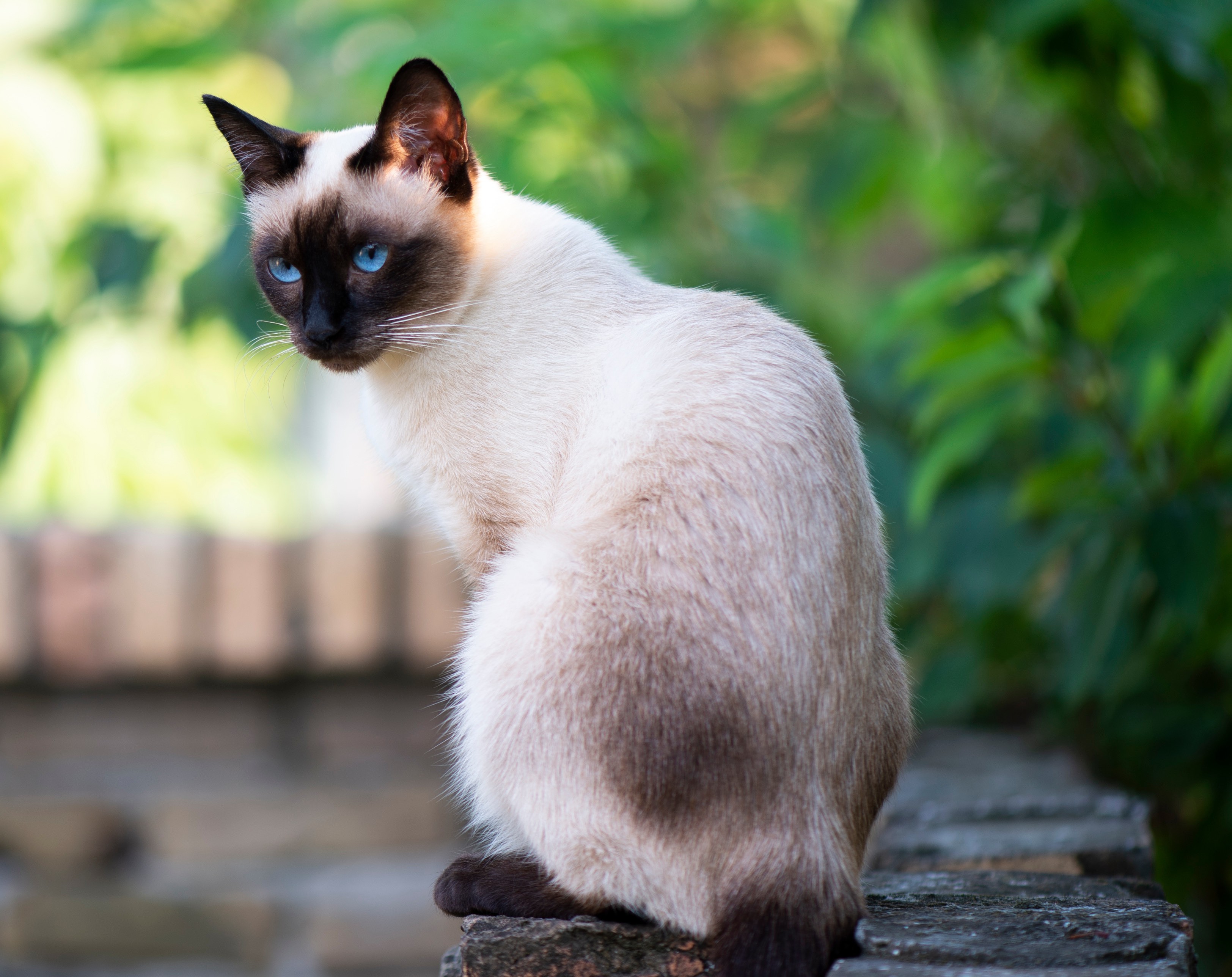
Another hypoallergenic cat is the Siamese. While there aren’t any cats that don’t shed, this blue-eyed feline has a short coat that doesn’t shed heavily. This means they don’t produce as many allergens as some other breeds.
Known for their vocal nature and adoration for their pet parents, Siamese cats have a lot to offer. However, they can be demanding in terms of attention and aren’t a good fit for families that are often away from home.
To keep your Siamese healthy, talk to your veterinarian about Siamese cat-specific food, such as Royal Canin Feline Breed Nutrition Siamese food, and whether it's the right fit for your kitty.
3. Bengal
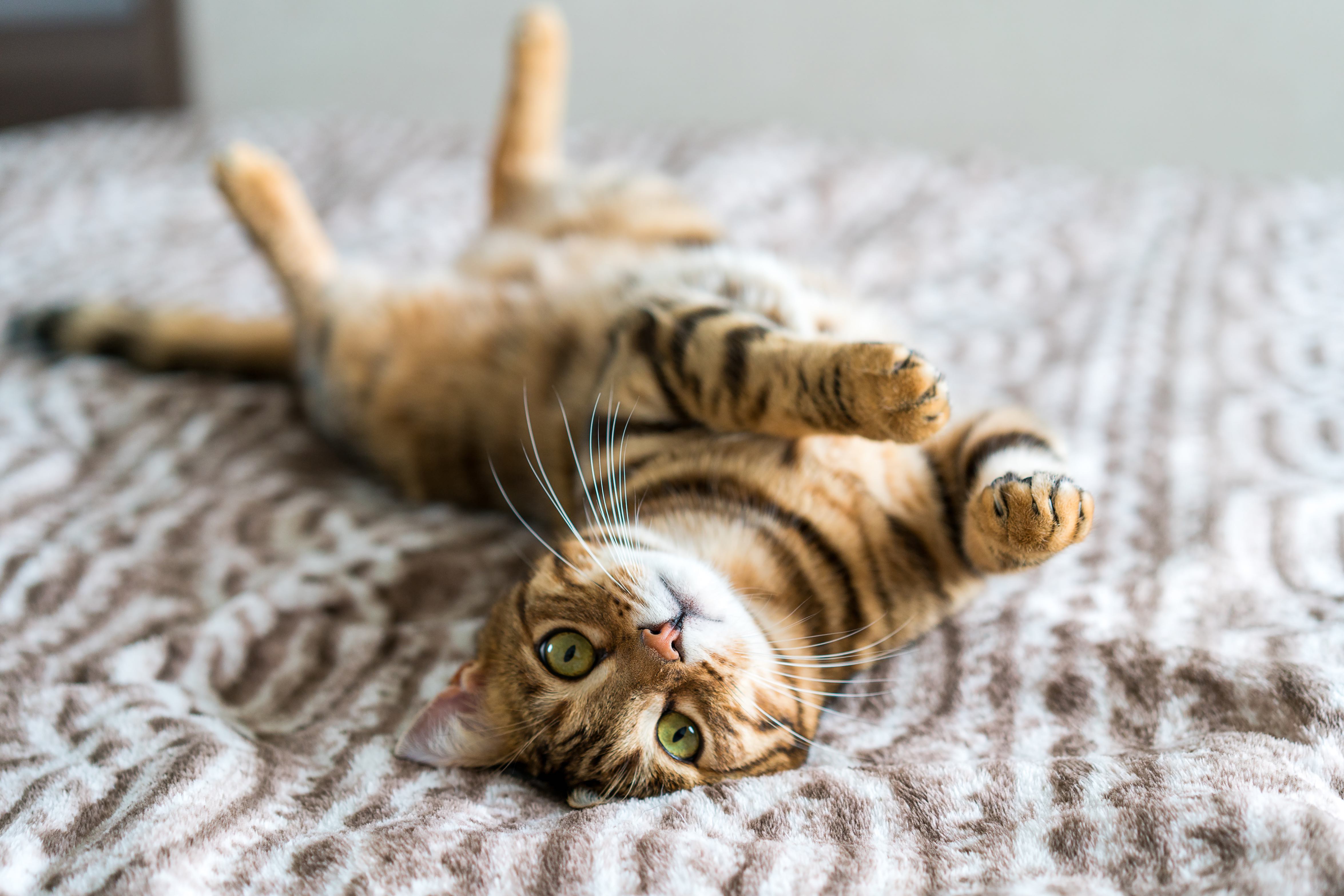
Bengal cats are a unique hypoallergenic breed. Their gorgeous, spotted short coat comes from their Asian leopard cat ancestors, giving them a wild appearance that makes them stand out. Like the other furry felines on this list, these cats don’t shed a lot.
But energetic and intelligent Bengals can be a handful for the unsuspecting pet parent, and some cities have regulations—or full-on bans—in place against them.
To ensure their nutritional needs are met, talk to your vet about feeding a breed-specific cat food, like Royal Canin Feline Breed Nutrition Bengal Cat Food.
4. Russian Blue

Hypoallergenic Russian Blue cats have an affectionate personality and a quiet nature that make them popular pets. These calm kitties can be shy around strangers and may take some time to warm up to new people.
While Russian Blues are cats that don’t shed much, they still benefit from occasional grooming to keep them looking their best.
5. Sphynx
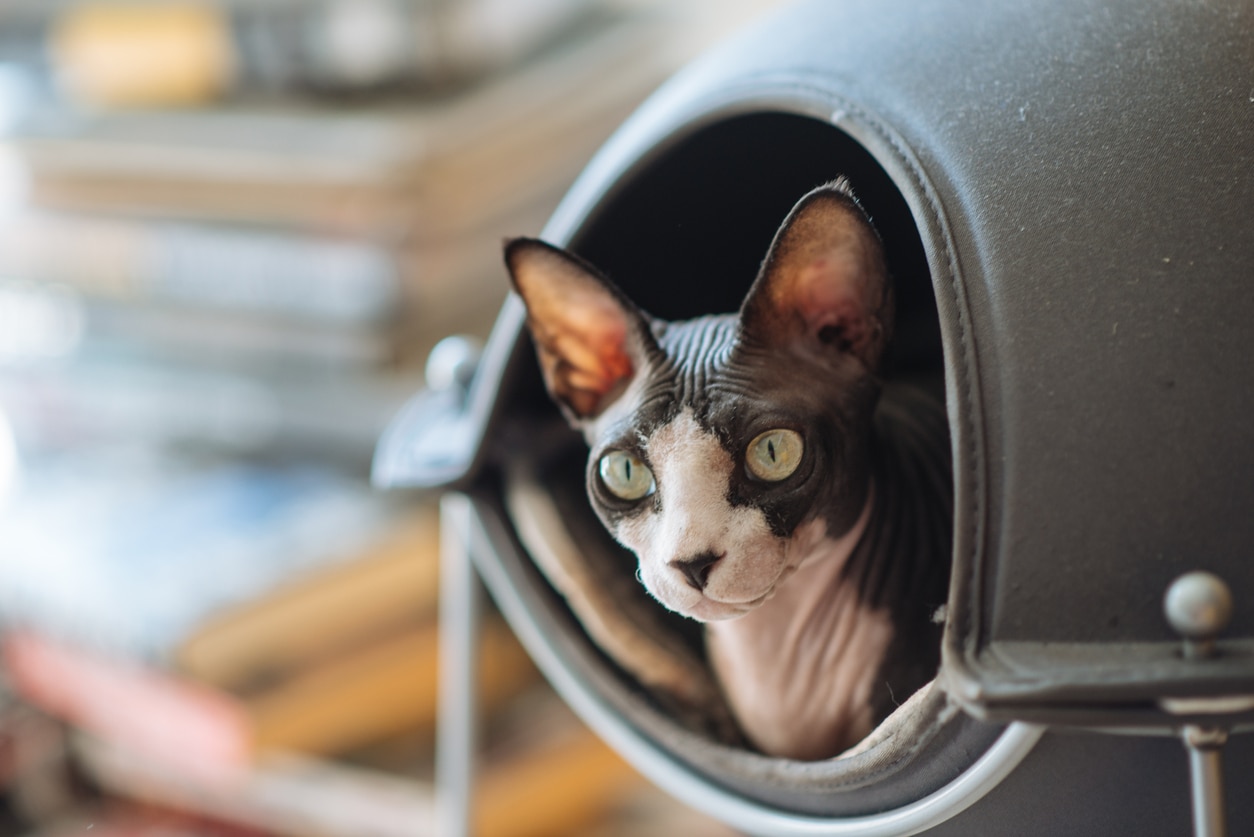
Compared to other cat breeds, Sphynx cats have a unique hypoallergenic quality: their near-nakedness. Sphynx cats can be completely bald or have a thin layer of peach fuzz, but all produce fewer allergens than many fluffy cat breeds.
But that lack of hair doesn’t mean they don’t need to be groomed—for their skin to remain healthy and free of oil, they need regular maintenance.
6. Devon Rex
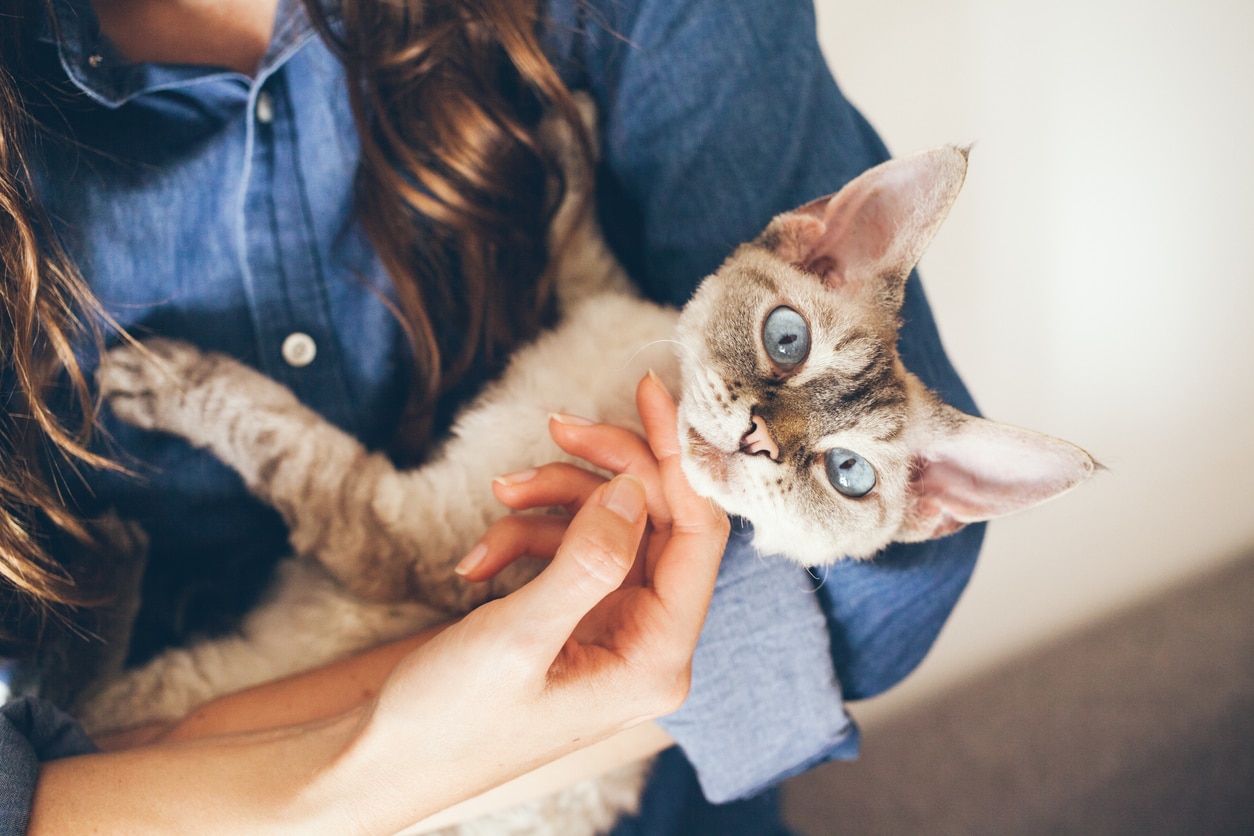
With short, curly hair, the Devon Rex is another one of the best cats for allergies. This breed is affectionate and intelligent, but they need a lot of attention from their family. So, if you are away from home for long periods of time, the Devon Rex may not be the best breed for you.
7. Cornish Rex
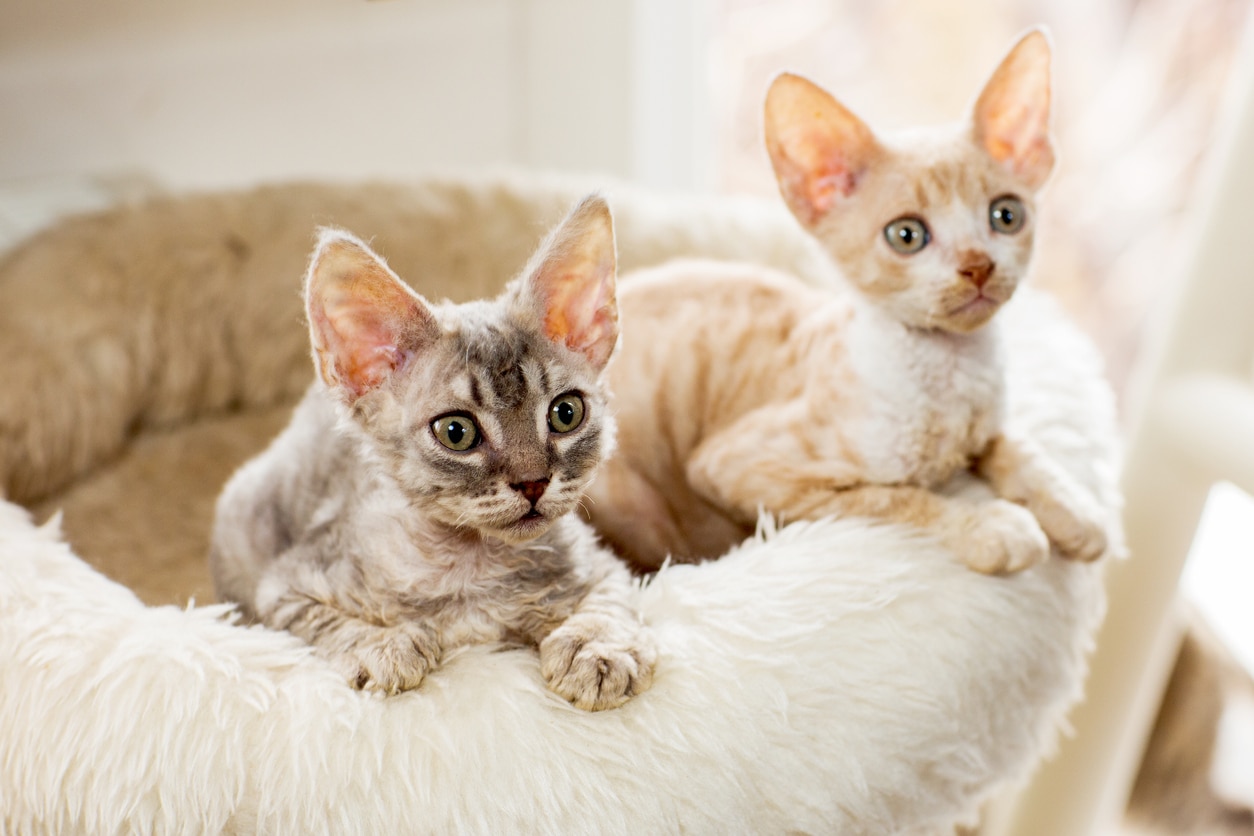
Like the Devon Rex, the curly hair and affectionate personality of Cornish Rex cats make them popular pets. They’re known for loving attention and being great with kids.
A Cornish Rex cat is high-energy and requires a lot of playtime and exercise, plus regular grooming sessions to keep their curly coat healthy. So, if you’re looking for a low-maintenance pet, they might not be the best choice.
8. Javanese
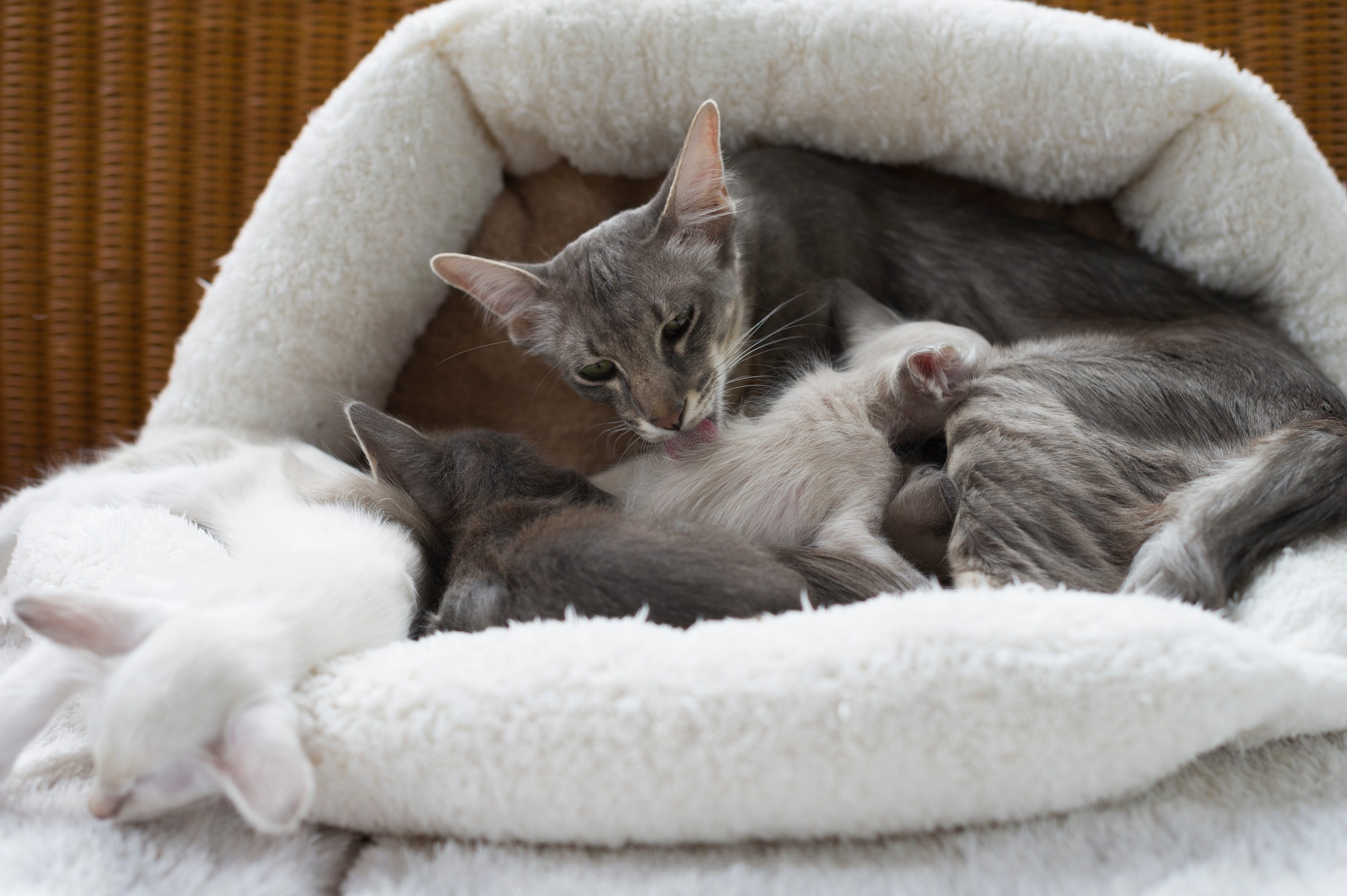
Javanese cats are another hypoallergenic cat breed with a longer coat. Because of this, they need consistent grooming to prevent their fur from matting, despite being a cat that doesn’t shed very much.
These vocal kitties are playful, smart, and love being around people—so much so, that they might seem a bit demanding for pet parents looking for a more independent cat.
9. Balinese
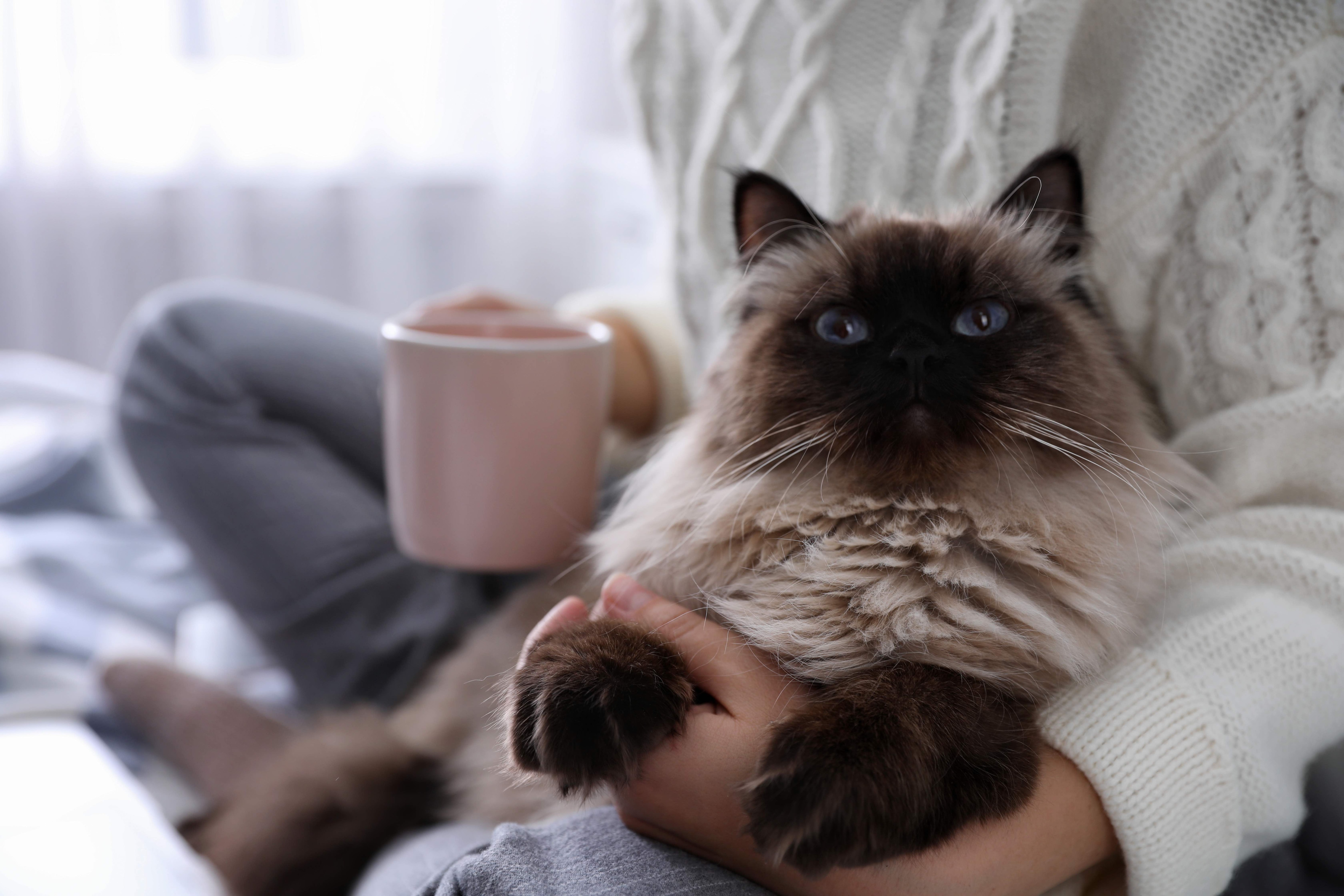
The Balinese is a long-haired breed closely related to the Siamese. As another affectionate cat breed, the Balinese is a great fit for all kinds of families, including those with children. They are also smart kitties and can be trained to do tricks using clicker training.
10. Oriental Shorthair
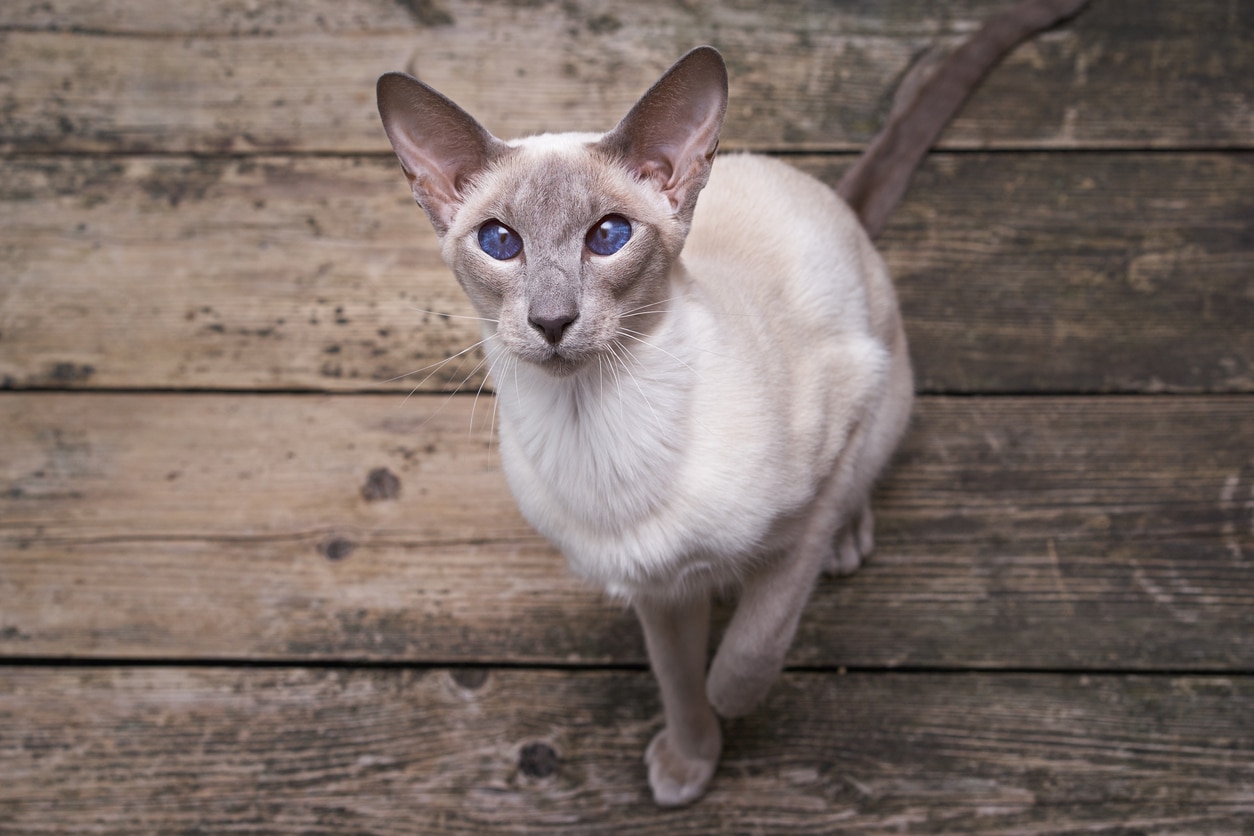
Oriental Shorthair cats have a sleek and elegant appearance. Along with being a good cat for allergies, they require only minimal grooming because of their short coat.
Bringing home an Oriental Shorthair gives you the perfect combination of intelligence and playfulness. Known for their activity and curiosity, they can be fun companions, love being around people, and have a distinct meow that sounds like a cute goose honk.
11. Burmese
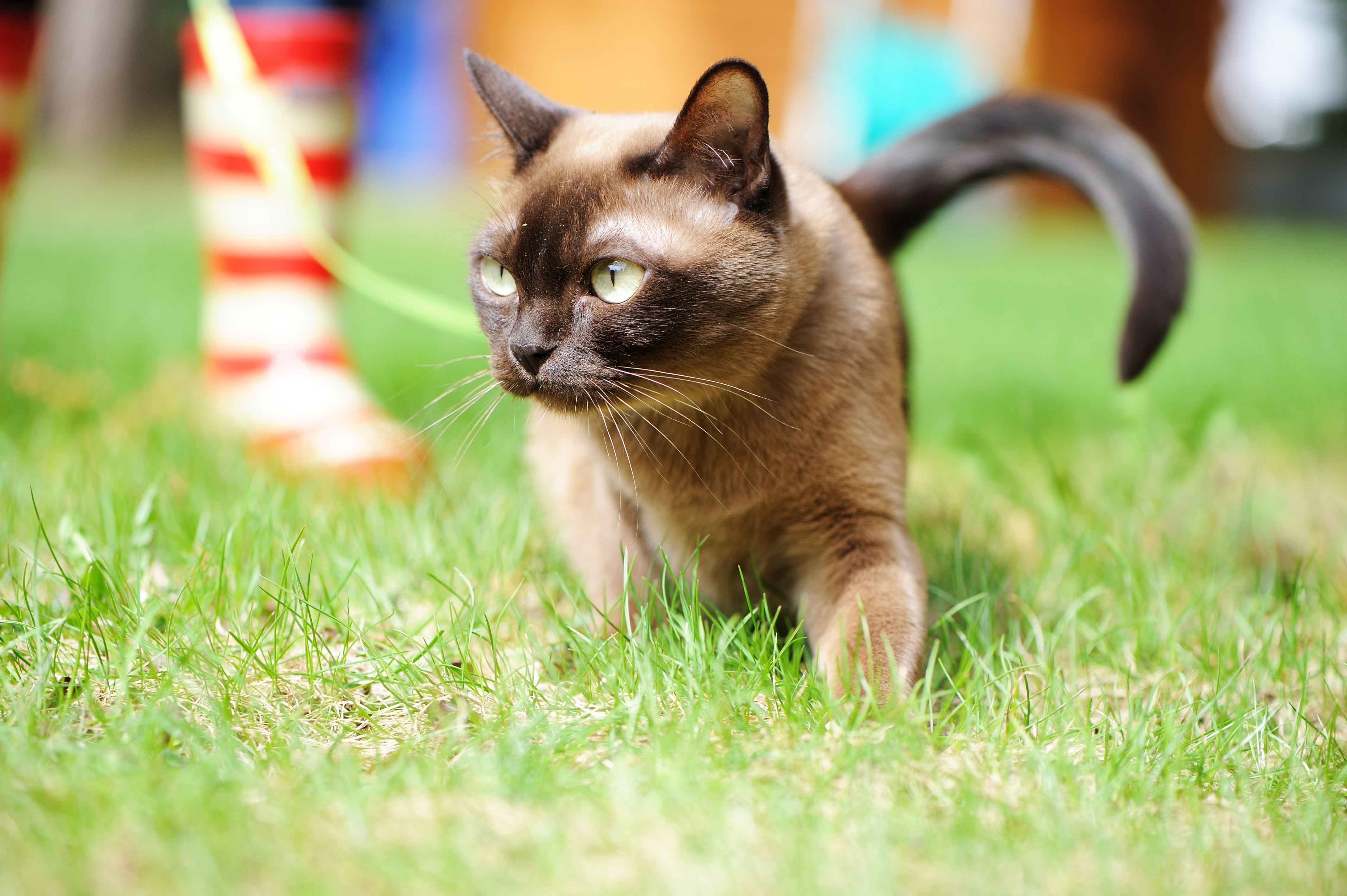
The short-haired Burmese is another hypoallergenic cat breed that doesn’t shed a lot or need much grooming. They’re affectionate, smart, and high-energy—meaning they need lots of playtime and exercise.
12. Tonkinese
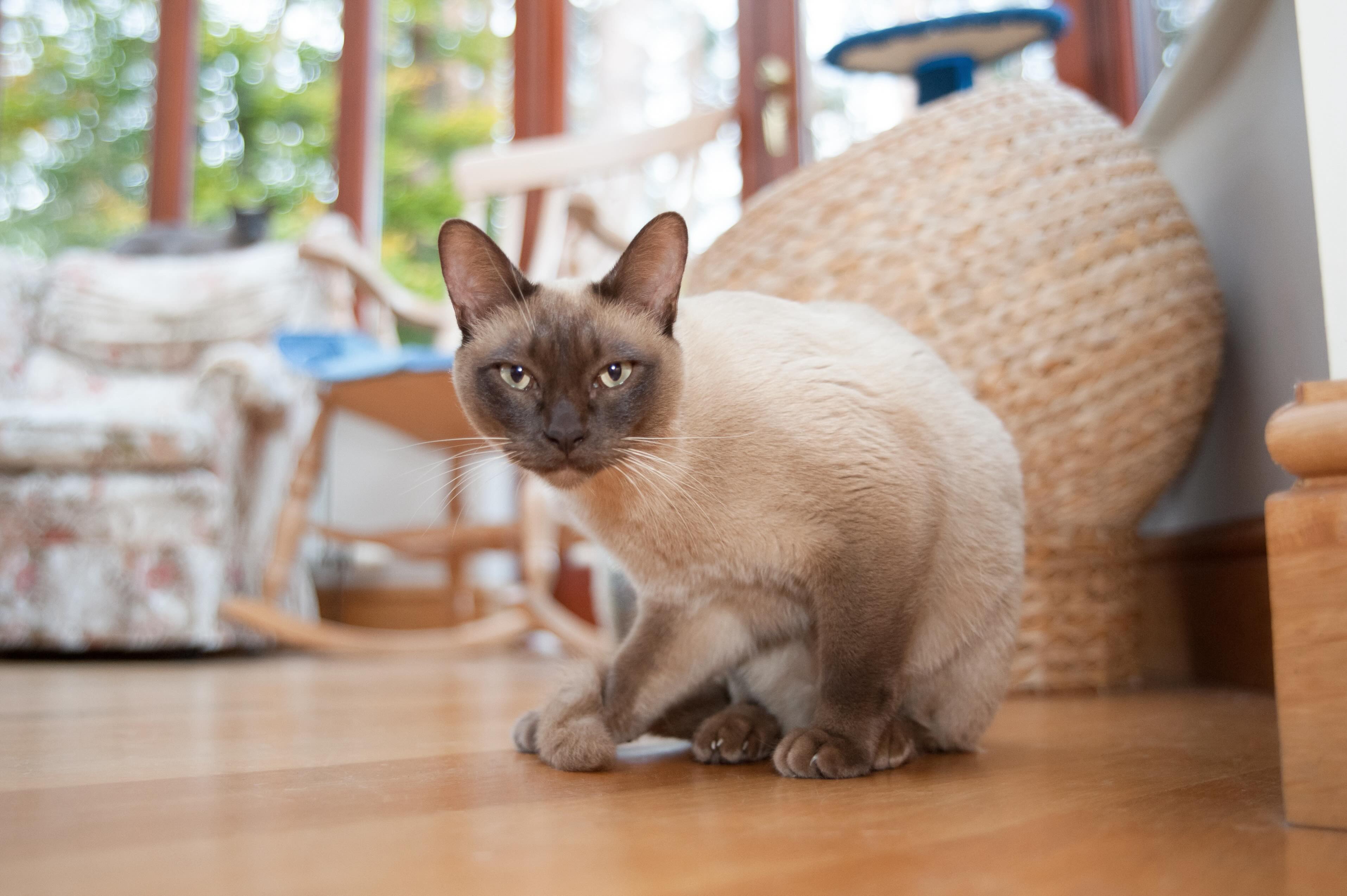
Tonkinese cats are a cross between the Siamese and Burmese. Though they have a short coat, these are low-shedding cats that can be a good fit for some people with allergies.
Like their parent breeds, Tonkinese are lively and energetic cats, so be prepared for lots of interactive play.
Tips for Adopting a Hypoallergenic Cat
Do Your Research
If you’re looking for a “hypoallergenic” cat, you need to do your research to find the right fit. Getting to know the cat in person is crucial before bringing them home. By doing this, you can determine if the breed triggers your allergies and how you react.
Talk With Your Allergy Specialist
Consulting with an allergy specialist to determine the severity of your symptoms can be helpful before you bring home a new cat. They might also provide medication recommendations that can ease your symptoms.
Keep Your Home Clean
Regular cats shed a lot of hair and dander, which can accumulate on furniture, carpets, and clothing. In addition to being difficult to clean, this can exacerbate allergy symptoms. It’s easier to keep the house clean when you have a hypoallergenic cat, as they shed less and produce less dander.
That said, it’s just as important to keep up with cleaning up any fur that falls from hypoallergenic cats, to keep your sniffles to a minimum.
Talk With Your Veterinarian
In addition to choosing a “hypoallergenic” cat breed, there’s an innovated cat food line (Purina® Pro Plan® LIVECLEAR) that’s formulated to significantly reduce the major allergens in the hair, dandruff, and saliva of cats. Your veterinarian can help you determine if this diet would be a good fit for you and your cat.
FAQs About Cats That Don’t Shed
Are there any non-shedding cats?
Completely hairless cats, such as the Sphynx, are cats that don’t shed. But even though they don’t lose their fur, these felines still produce allergens in their skin, saliva, and urine.
Can cats be 100% hypoallergenic?
No, there is no such thing as a 100% hypoallergenic cat. Even cats that don’t shed produce allergens.
